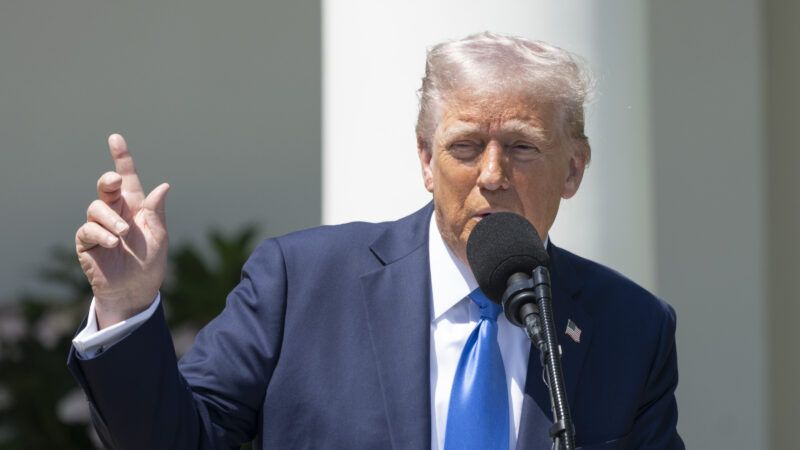Federal Judge Rules Trump's Alien Enemies Act Proclamation Is Unlawful
The Trump-appointed judge found that the administration's use of the Alien Enemies Act "exceeds the scope of the statute and is contrary to the plain, ordinary meaning of the statute's terms."

A federal judge ruled today that the Donald Trump administration's invocation of the Alien Enemies Act (AEA) of 1798 to remove alleged members of a Venezuelan gang from the country is unlawful.
U.S. District Judge Fernando Rodriguez Jr., a Trump appointee, issued a permanent injunction barring AEA-based removals from the Southern District of Texas. Rodriguez found that the Trump administration's March 15 proclamation that the gang Tren de Aragua (TdA) was a terrorist organization perpetrating an "invasion or predatory incursion" of the U.S. under the AEA did not match the historic understanding of the law or its plain text.
"The question that this lawsuit presents is whether the President can utilize a specific statute, the AEA, to detain and remove Venezuelan aliens who are members of TdA," Rodriguez wrote. "As to that question, the historical record renders clear that the President's invocation of the AEA through the Proclamation exceeds the scope of the statute and is contrary to the plain, ordinary meaning of the statute's terms. As a result, the Court concludes that as a matter of law, the Executive Branch cannot rely on the AEA, based on the Proclamation, to detain the Named Petitioners and the certified class, or to remove them from the country."
The ruling is in response to a federal class-action lawsuit filed by the American Civil Liberties Union (ACLU) on behalf of three Venezuelan nationals being held at the El Valle Detention Center in Texas who face the risk of immediate removal to El Salvador because of their alleged ties to TdA.
The ruling is likely to be appealed to the conservative U.S. Court of Appeals for the 5th Circuit, but it is yet another setback for the Trump administration, which has struggled to find judges willing to entertain its unprecedented claims of executive power.
The Supreme Court ruled last month in a different ACLU lawsuit that Venezuelans subject to removal under the proclamation must be given proper notice and a chance to file habeas corpus petitions—contrary to the administration's claims that the removals were unchallengeable and nonreviewable.
However, the Supreme Court did not address the use of the Alien Enemies Act itself, and Rodriguez's order today is the first major court ruling on the merits of the proclamation.
It did not go well for the Trump administration. Citing the three previous uses of the Alien Enemies Act by presidential administrations—during the War of 1812, World War I, and World War II—and the ordinary meanings of invasion and predatory incursion when the law was drafted, Rodriguez found that the White House's proclamation did not establish the authority to invoke the law.
"This decision correctly recognized that the president cannot simply declare there's an invasion and invoke a wartime authority during peacetime," Lee Gelernt, a lead ACLU attorney on the case, told The New York Times. "As the court recognized, Congress never intended this law to be used in this manner."
However, Rodriguez declined to address several other important aspects of the proclamation, such as whether Venezuela is in fact coordinating with TdA as a hostile foreign nation. The judge also ruled that the administration is not required to give subjects of AEA removals a chance to voluntarily leave the country.
Rodriguez also noted that the administration could continue to pursue removals under the Immigration and Nationality Act.
